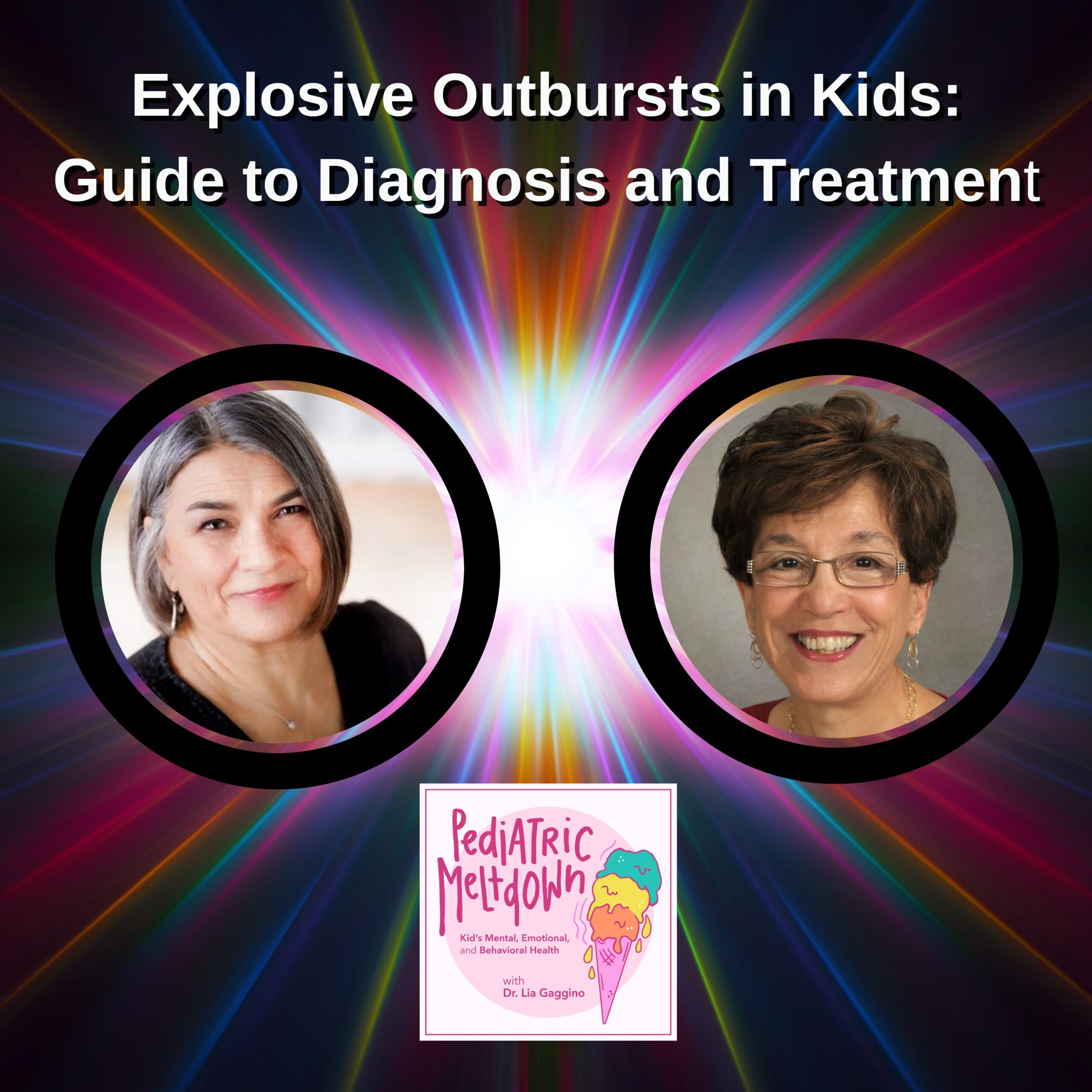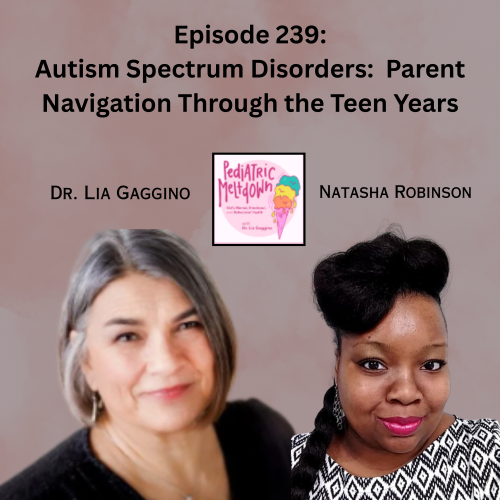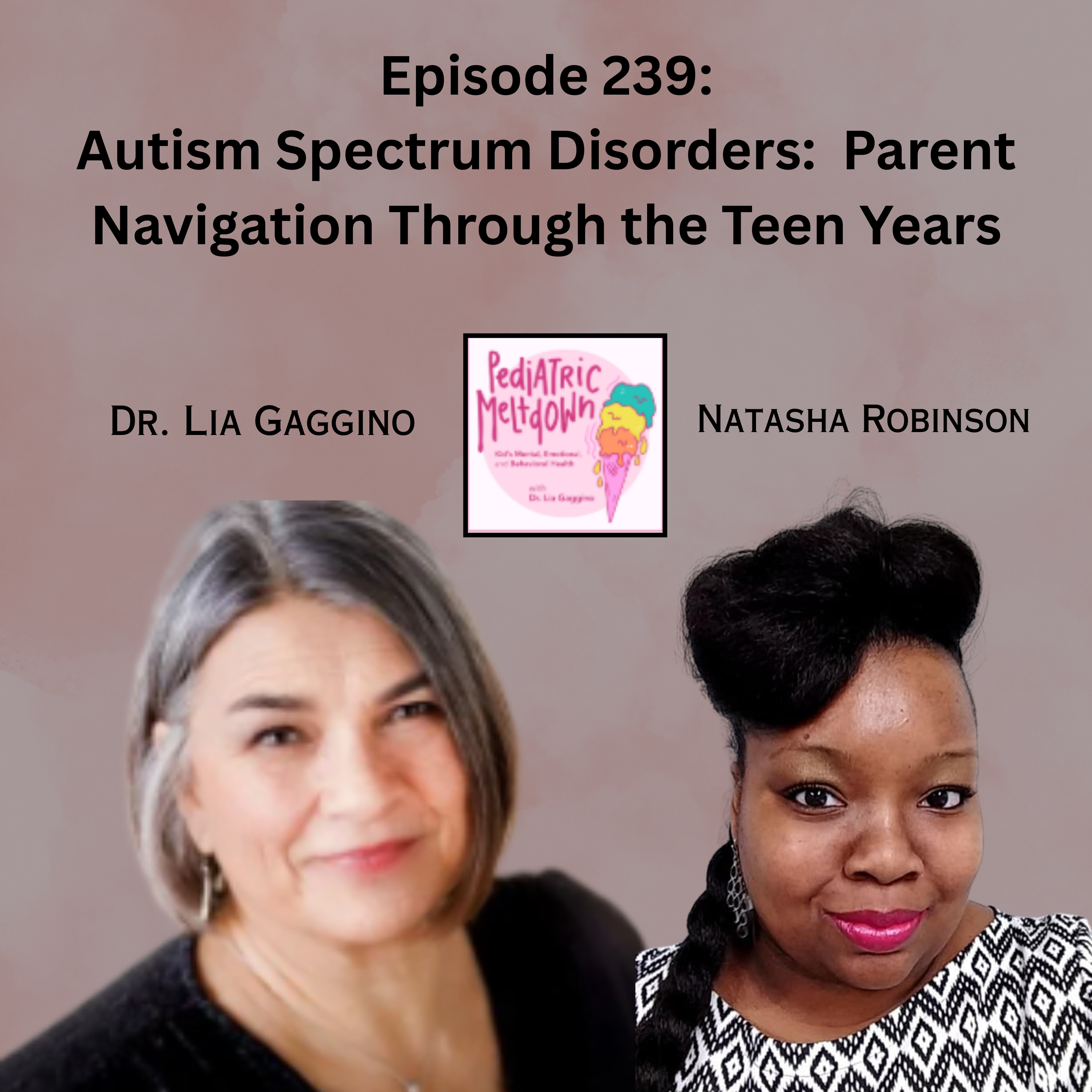Explosive Outbursts in Kids: Guide to Diagnosis and Treatment
In this episode of Pediatric Meltdown, we dive into the complexities of disruptive mood dysregulation disorder (DMDD) and how the DSM-5’s new classification aims to solve the puzzle of childhood bipolar misdiagnosis by distinguishing DMDD from other behavioral disorders like conduct disorder and oppositional defiant disorder.
Join host Dr. Lia Gaggino and child psychiatry expert Dr. Gabrielle Carlson as they explore the intricate challenges of diagnosing and treating irritability and outbursts in children.
This episode is essential for anyone struggling to understand or manage aggressive behavior in children, providing a roadmap to better interventions and outcomes. You’ll find that today’s discussion with Dr. Gabrielle will bring some much-needed clarity to the often misunderstood world of Conduct Disorder.
[03:21-05:54] Understanding Disruptive Mood Dysregulation Disorder (DMDD)
- Concerns of overdiagnosis of bipolar disorder in children as per changes in DSM-5.
- Discusses the need for a “diagnostic home” for children exhibiting chronic irritability and frequent outbursts.
- Differentiates DMDD from bipolar disorder, highlighting less episodic mood change and more persistent irritability.
- Discusses using medical and psychiatric collaborative approaches for accurate diagnosis.
[05:55 – 18:49] Diagnostic Challenges in Pediatric Psychiatry
- Explores the complexity of diagnosing behavioral disorders in children, stressing the influence of parental worries.
- Differences between conduct disorder and oppositional defiant disorder in the context of purposeful aggression and core outbursts.
- Highlights how the underestimation of trauma impacts behavioral assessments.
- descriptive codes to assist in more accurate diagnosing, particularly in children with overlapping symptoms.
[18:50 – 33:15] The Role of Environmental Factors and Parental Involvement
- Discussion on the triggers and antecedents in aggressive behavior management in pediatric patients.
- Examines the impact of environmental factors, especially in relation to ADHD and pediatric bipolar disorder.
- Highlights parental involvement as crucial in the management and treatment of behavioral issues.
- The challenges of finding effective medication for aggression treating irritability specifically in relation to autism.
[33:16 – 4613] Resources and Treatment Approaches in Child Psychiatry
- Details on Gabrielle’s routine evaluation process including her developed rating scale ‘emo eye’.
- The utility of the ACAP (American Academy of Child and Adolescent Psychiatry) Resource Center resources for clinicians and families. [ACAP Resource Center](https://www.aacap.org)
- Talks about the necessity of evidence-backed treatment options and FDA approvals for therapy tools.
- Covers the importance of educating parents using resources such as medication guides available through ACAP.
[46:14 – 55:23] Closing segment Takeaway
Links to resources mentioned on the show
AACAP Outbursts, Irriitability, and Emotional Dysregulation Resource Center:
AACAP Parent’s Medication Guide: https://www.aacap.org/AACAP/Families_and_Youth/Family_Resources/Parents_Medication_Guides.aspx
AACAP Facts for Families: https://www.aacap.org/AACAP/Families_and_Youth/Facts_for_Families/Layout/FFF_Guide-01.aspx
ACCAP Emotional Outburst Inventory: https://www.aacap.org/App_Themes/AACAP/Docs/resource_centers/emotional_dysregulation/irritability%20questionnaire-parent_version.pdf
Other episodes you may like:
https://pediatricmeltdown.com/episodes
142 Difficult Childhood Behaviors: Meeting the Challenges of Parenting
134 Early Childhood Education: Empowering Parents
112 Schizophrenia: Recognizing the Early Symptoms
Key quotes for Twitter:
“So, with conduct disorder, you have much more of instrumental or purposeful aggression.”… Dr. Gabrielle Carlson on understanding conduct disorder
“With a bipolar disorder, you often have to follow the kid and you get a family history, but you don’t always have a good family history”….Dr. Gabrielle Carlson on the importance of family history
THANK YOU FOR YOUR SUPPORT!
Pediatric Meltdown was listed as a Top 20 Pediatric Podcast on FeedSpot.
If you’d like to connect with me, you can Tap the “What Are Your Thoughts” button at the top of the notes or you can find me on LinkedIn, Facebook, Instagram, and Twitter, or email me at [email protected]. To learn more about me visit https://www.pediatricmeltdown.com/ or reach out, DM me on IG, FB or LI and if you’d like to chat set up a discovery call to talk about your needs and challenges: https://calendly.com/gagginol/discovery-call
LOVE WHAT YOU HEARD? Leave us a 5-star review so we can continue to provide you with great content. Share this episode and help people know more about children’s health and well-being.








